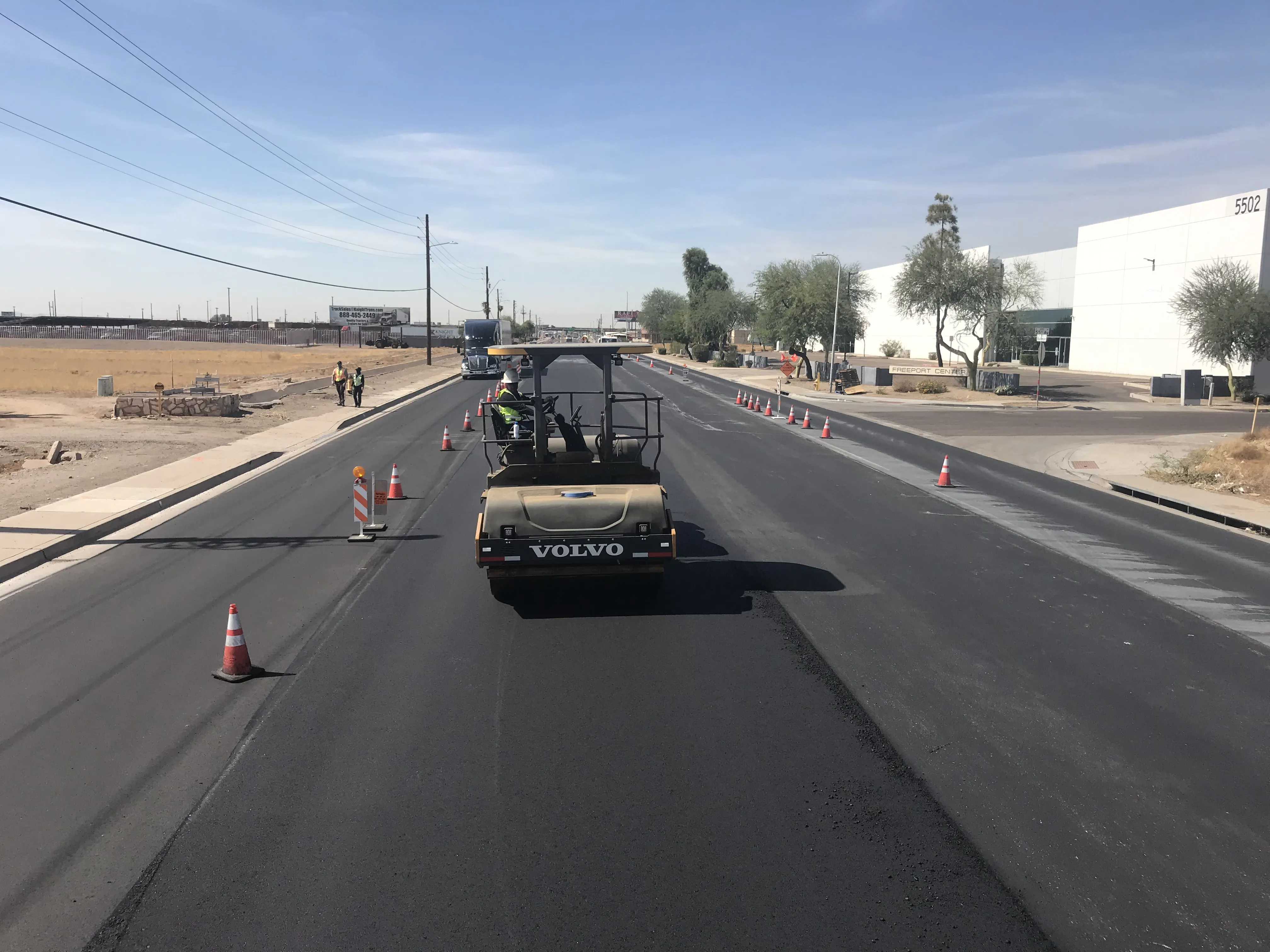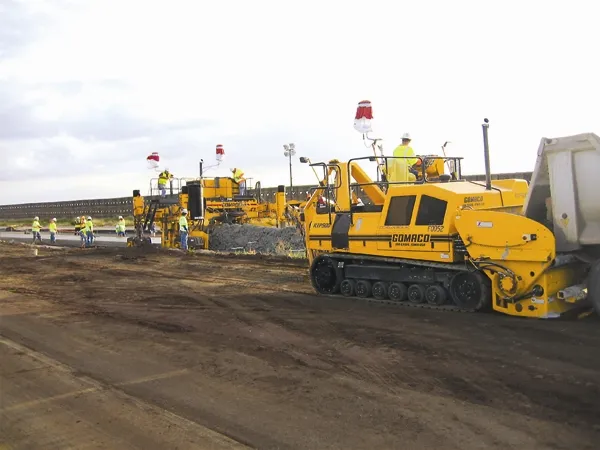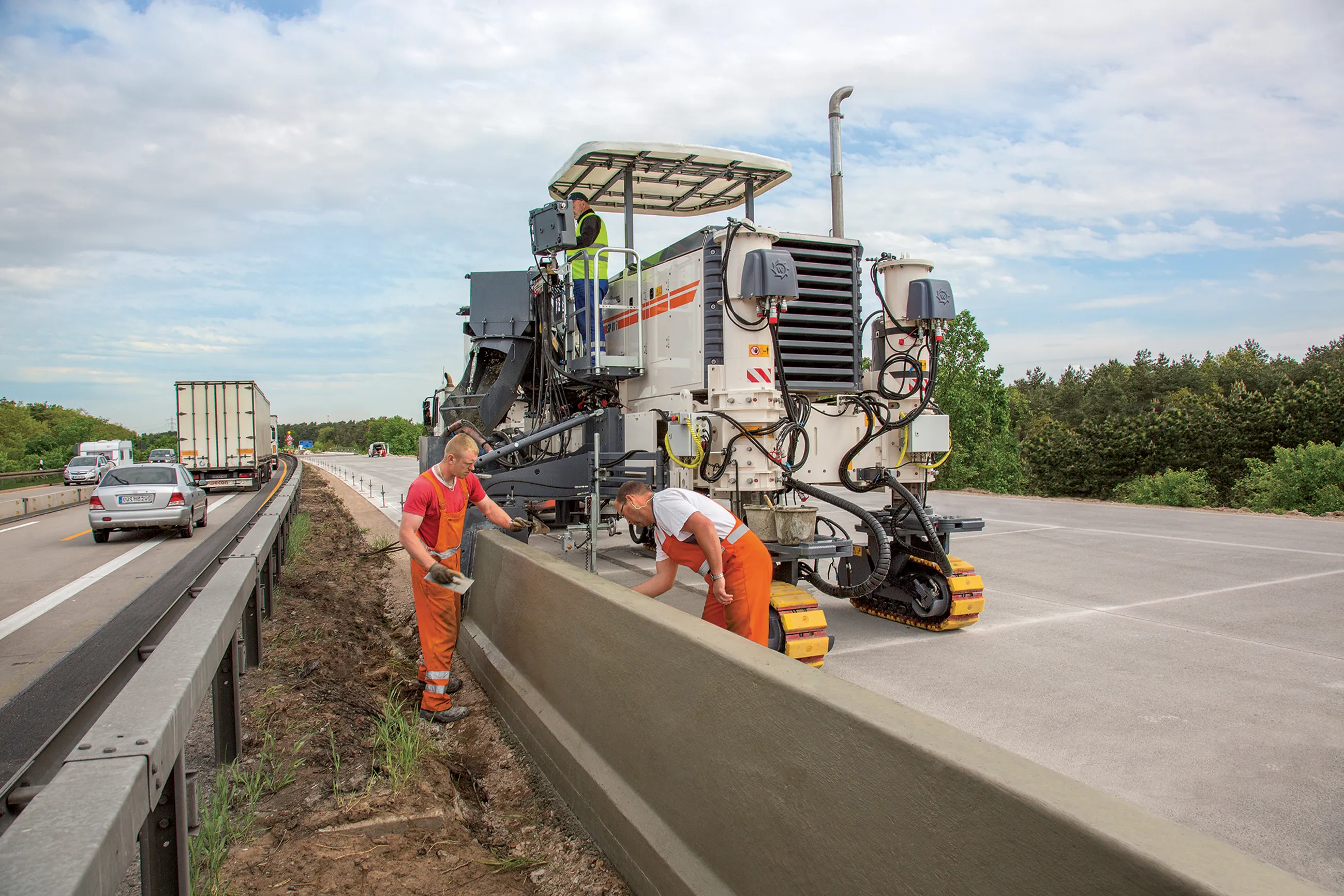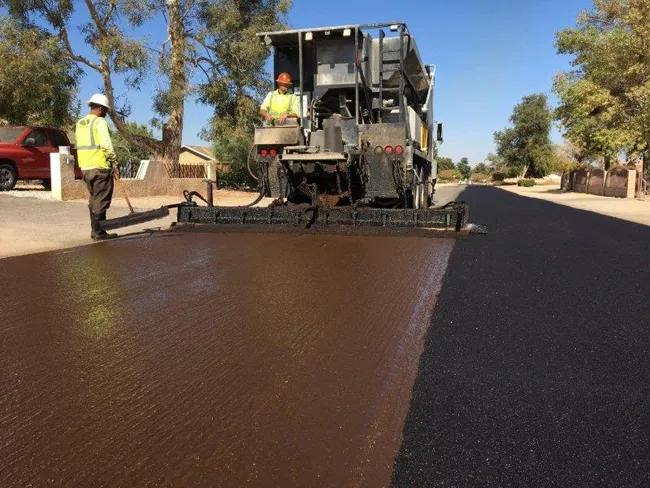
The city of 4.8 million inhabitants and around 1,400miles of paved roads, hasn’t explored the benefits of RAP. Indeed, within the construction industry itself, there are misperceptions about RAP performance as well as a lack of shared research.
All of that changed when the team at Solterra Materials, a Phoenix-based asphalt mix company, presented a compelling case to the city that it was time to roll out a trial section of RAP to demonstrate what they already knew. Based on initial lab results that looked at RAP with Cargill’s plant-based rejuvenator, the went forward with a pilot programme.
Asphalt in the US state of Arizona – Phoenix is the state capital - is extremely stiff and brittle. To mitigate this, Solterra examined a number of rejuvenator types - fatty acids, vegetable oils, petroleum-based and vegetable oil blends - to see which would yield the best results. It was determined that Cargill’s Anova vegetable oil-base rejuvenator, with a slight asphalt grade bump, was by far the most effective.
Following extensive lab evaluation of RAP properties at 10%, 15% and 25%, a nearly one-mile (1.6km) test section of the heavily-trafficked arterial road Buckeye Road, just west of central Phoenix, was selected for the pilot programme. Solterra worked closely with the Cargill team to dial in the right Anova dosage. Around 2,300 tons of hot mix was produced for the surface course containing 20% RAP.
The mix with Cargill’s Anova rejuvenator performed the best compared to all the other mixes and also was less expensive, noted Pat Weaver, president of Solterra Materials. “Today’s bio-based chemistries actually restore the RAP binder’s rheological and other damaged properties while adding many other performance benefits such as reduced compaction temperatures up to 45°F (around 7°C), lowers volatile organic compounds (VOCs), low volatile mass loss and enhanced low temperature cracking resistance.”
Lab tests showed that the 20% highly-aged RAP with the correct dosage of Anova rejuvenator performed as well as virgin mixes.
The mix delivered a 10% cost savings and overall performance indicators are also showing positive results, including flexibility index increase from 12 to 18.5 as measured by the I-FIT – Illinois Flexibility Index Test. The laydown contractor said the mix with the rejuvenator handled well, was very easy to place and behaved like any standard warm mix asphalt.
“After several months since it was paved, we’re seeing strong results in terms of performance with no cracking or rutting,” said Weaver. “I’ve personally driven on the road several times and… this is encouraging as this section is in a heavy industrial zone, so we see it holding up even better on residential streets.”
Performance to date has prompted the city to compare its current surface mix against the 20% RAP version, considering a shift in specs for future paving. Based on these initial results, the city adjusted its specifications starting in 2022 to include more RAP.
Following on from the initial pilot, this spring the city plans to test more road sections with RAP to reinforce the early findings.








